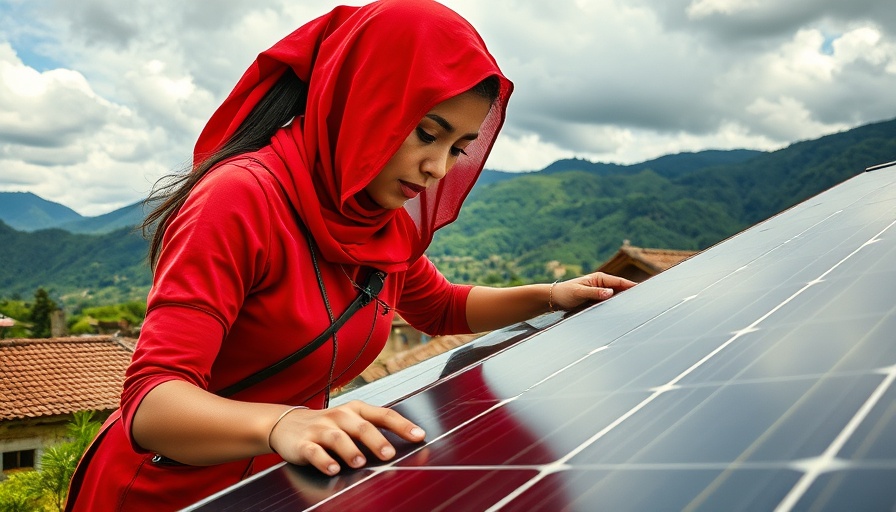
Global Aid Trends in 2024: A Shocking Decrease
The landscape of international aid is undergoing drastic changes as we enter 2024. After six consecutive years of growth, global aid contributions have fallen to $212.1 billion—a decline of 7.1% compared to 2023. This downturn is troubling news for numerous developing nations that rely heavily on foreign aid and underscores significant geopolitical shifts affecting international relations.
What’s Driving the Aid Cuts?
The decline in aid can be attributed to a multitude of factors, including a sweeping freeze on foreign assistance by the Trump administration, which has negatively impacted the U.S. Agency for International Development (USAID). This grim trend raises alarms among experts, who cite increasing pressures like defense spending demands and the after-effects of the COVID-19 pandemic as significant contributors to reduced aid budgets.
Major Donors: Who's Contributing?
According to the OECD, the United States remains the largest single donor, contributing $63.3 billion in 2024—nearly a third of the total aid pool. However, the U.S. aid expenditure only accounted for 0.22% of its Gross National Income (GNI), well below the United Nations' target of 0.7%. Such figures illustrate how the U.S.'s aid contributions may appear generous in absolute numbers but lag when viewed from the perspective of wealth contribution.
Comparative Generosity: Countries that Lead in Giving
Interestingly, while the U.S. dominates in absolute terms, other nations exhibit greater generosity relative to their wealth. Countries like Denmark, Luxembourg, Norway, and Sweden have all exceeded the UN target, projecting a stronger commitment toward international aid and sustainable development. On average, OECD countries allocated about 0.33% of their GNI to aid, highlighting disparities in willingness to invest in global initiatives.
The Impact on the Poorest Nations
These cuts are more than just numbers on a budget—they have real-life implications. Carsten Staur, head of the DAC, expressed concerns over worsening conditions for the world's poorest populations, particularly in sub-Saharan Africa, which hosts two-thirds of the 700 million individuals living on less than $2 a day. Aid experts are urging a focus on sustained funding for the most vulnerable communities affected by these budget reductions.
New Paths Forward: Innovative Funding Solutions
To counteract these challenges, organizations like Oxfam propose innovative funding solutions. For instance, they advocate for taxing the wealthiest individuals as a viable method to restore and increase aid budgets. This approach could align the urgency of addressing poverty with sustainable practices and social responsibility, contributing to a more equitable global society.
The Role of Aid in Achieving Sustainable Development Goals
International aid also plays a pivotal role in advancing the United Nations Sustainable Development Goals (SDGs). These goals, which include eradicating poverty and promoting responsible consumption and production, require substantial financial commitment from donor countries. The decrease in global aid presents a significant hurdle in achieving these long-term objectives, particularly in ensuring sustainable outcomes related to climate action, biodiversity, and sustainable cities.
Conclusions and the Path Ahead
As global aid budgets shrink and societal needs grow, numerous questions remain about the future of international assistance. This situation calls for renewed focus on philanthropy and sustainable funding models that prioritize vulnerable populations. The fate of millions hangs in the balance. As eco-conscious readers, it is imperative to demand sustainable solutions from policymakers and to engage with ethical businesses that align their practices with the goal of responsible consumption and global stewardship.
As we’ve seen, the implications of these aid trends extend far beyond financial figures; they touch the very core of humanity. By staying informed and advocating for responsible practices in our own lives, we can contribute to the greater narrative of environmental conservation and social responsibility.
Call to Action: Consider supporting businesses that embody ethical sourcing and sustainable practices, contributing to a healthier future for our planet. Your choices matter, and together we can foster a more sustainable world for those who need it most.
 Add Row
Add Row  Add
Add 



Write A Comment